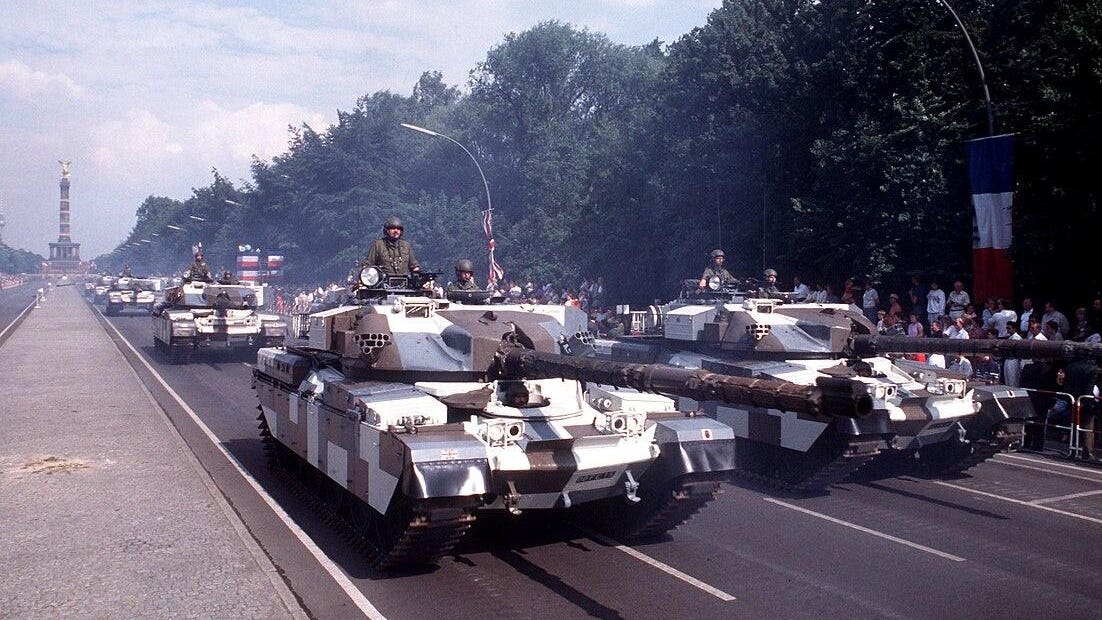Is the Ukrainian army about to get old British-designed Chieftan tanks? It’s possible.
On Tuesday, Ukrainian journalist Roman Bochkala posted a video of himself apparently somewhere in the United Kingdom, standing in front of a crew working on a half-painted tank.
The tank and others like it soon would be in Ukraine, Bochkala said.
Bochkala described the tank as a 1980s-vintage Challenger 1. It’s not. It’s a Chieftan, the 62-ton tank that came before the Challenger 1 … in the 1960s.
The diesel-powered, four-person Chieftan is obsolete but not useless. “It will comprehensively outclass [ex-Soviet] T-54/55, T-62, T-64 and T-72 [tanks],” tweeted Nicholas Drummond, a British armor consultant.
A Chieftan can fire, while moving, a wide array of modern rounds from its 120-millimeter rifled gun out to a distance of two or three miles.
But the Chieftan is underpowered and thinly protected. Its steel armor is just 200 millimeters thick at its thickest point. During the Iran-Iraq war in the 1980s, Iraq’s Soviet-made T-62s fired 115-millimeter rounds straight through the turrets of Iranian Chieftans.
The British Army was so alarmed by the Iraqis’ destruction of Iranian Chieftans that it launched a crash program to develop an add-on armor kit—layers of rubber and steel—for its own Chieftans.
That so-called “Stillbrew” armor boosted a Chieftan’s protection by 50 percent. The problem is that the United Kingdom never exported Stillbrew. And it’s likely that, if Ukraine indeed is getting Chieftans, the tanks are coming from one of the last countries to use them: Jordan.
The Ukrainians have a tried-and-true method of adding protection to thinly-armored tanks. They weld on rows of explosive reactive armor.
All of Ukraine’s ex-S0viet tanks have gotten the ERA treatment. German-made Leopard 2A4s are getting the added armor, too. And it’s safe to assume the Ukrainians will weld as much ERA as they possibly can to the hundred-plus old, and thinly armored, Leopard 1A5s they’re getting later this year.
If the Chieftan offers the Ukrainian army anything, it’s long-range day-night firepower. The tank’s optics, while aging, were famously effective in their day.
“You could see someone taking a leak from a mile away,” former British Army Chieftan gunner Mick Hadfield said in a recent podcast. “A vehicle would drive off and you’d still see the heat signature of the tires in the ground.”
Read the full article here





